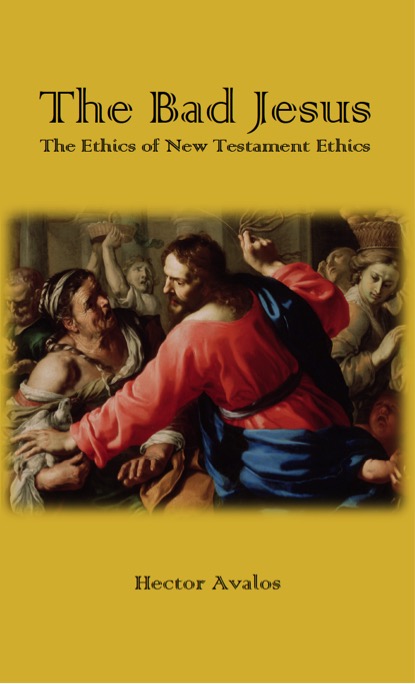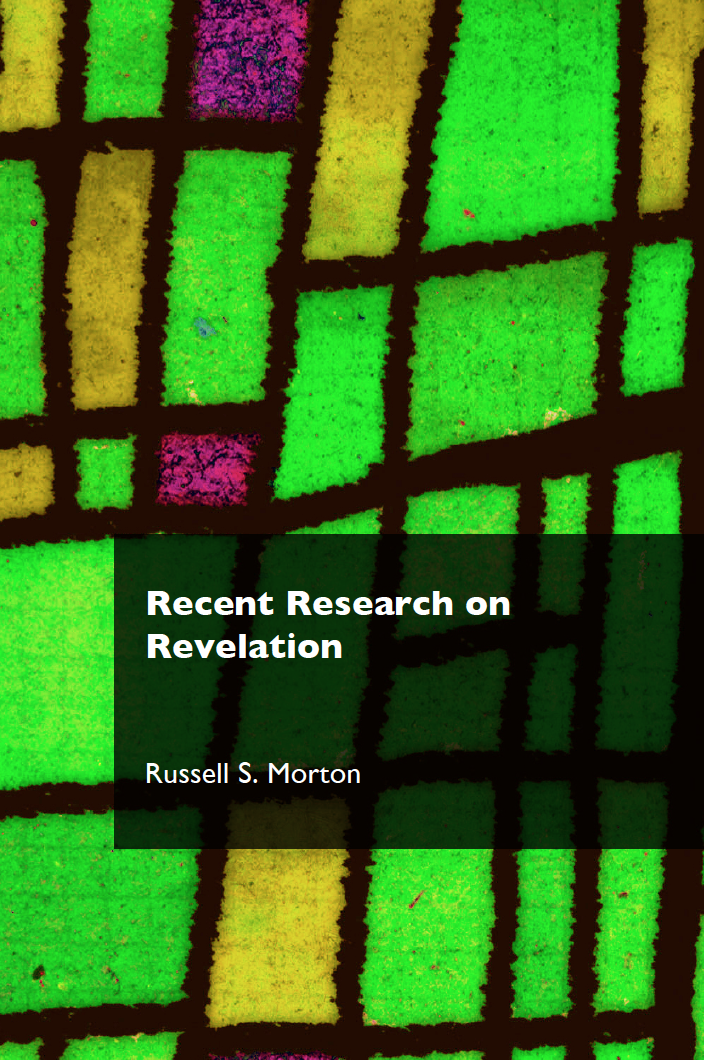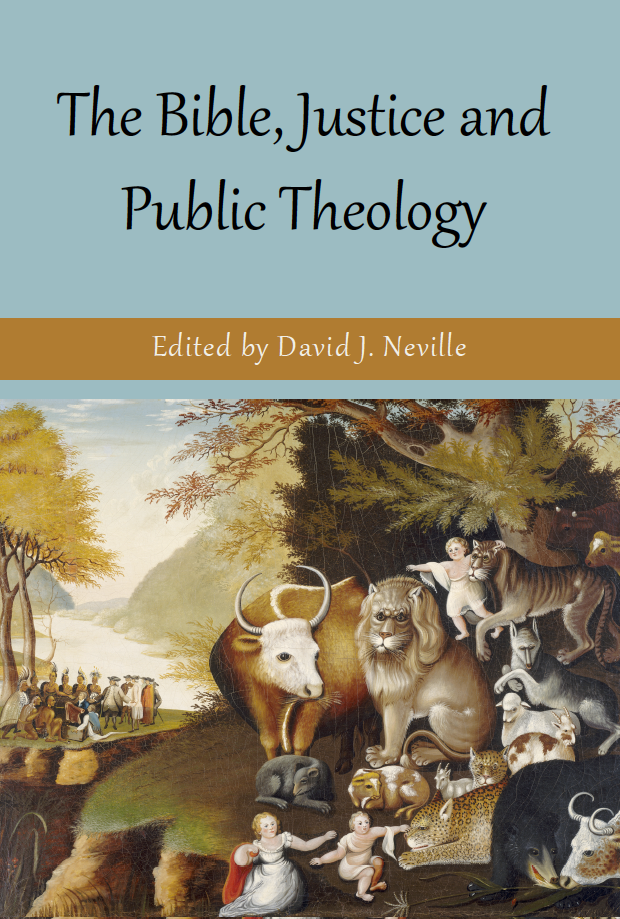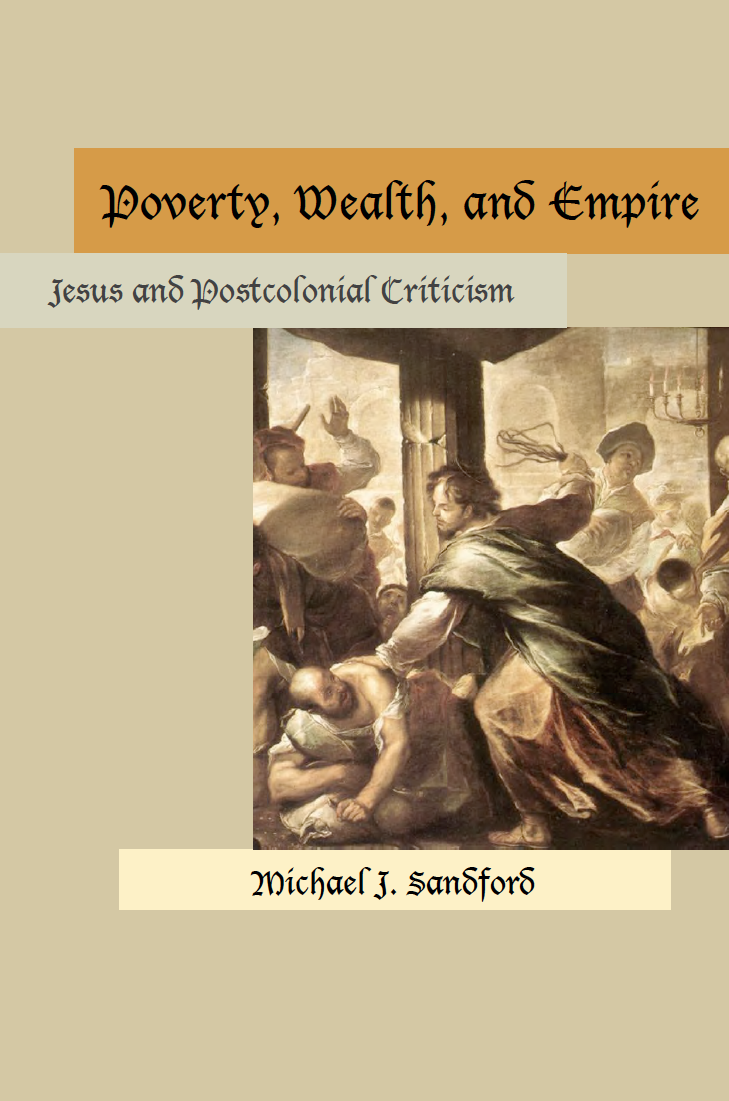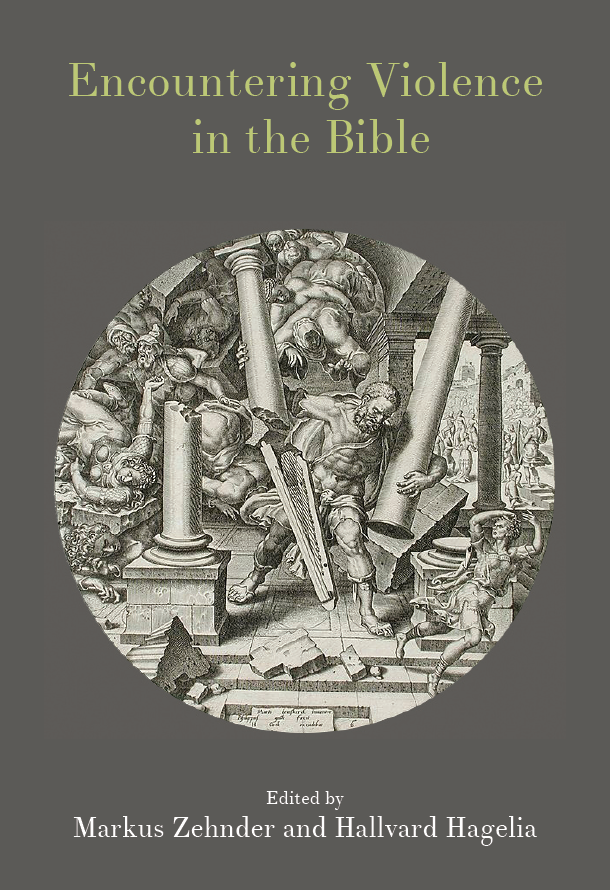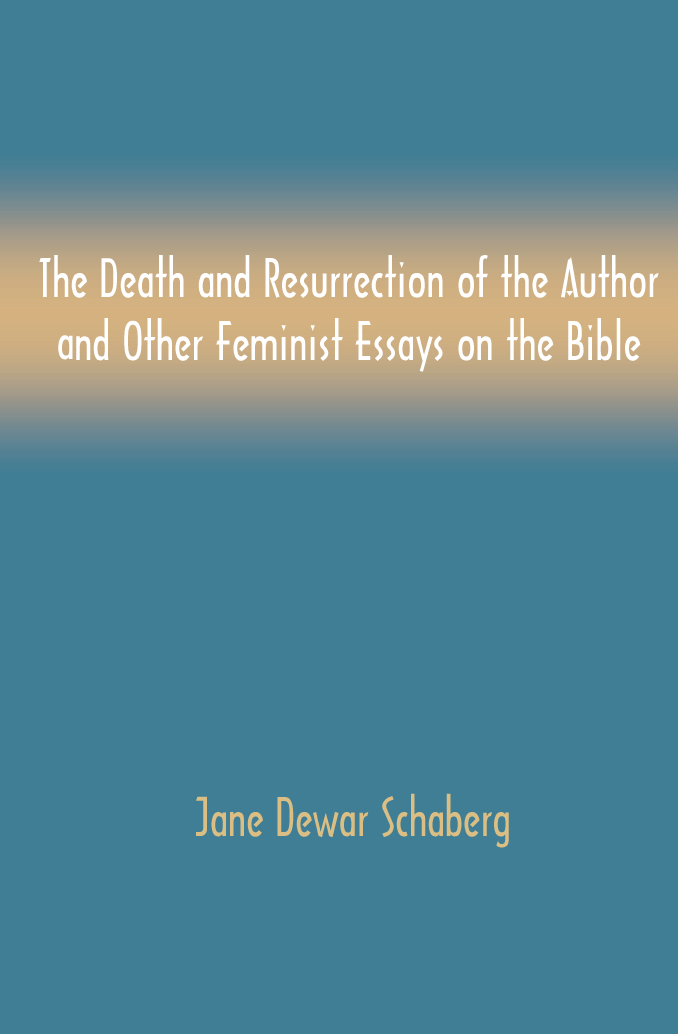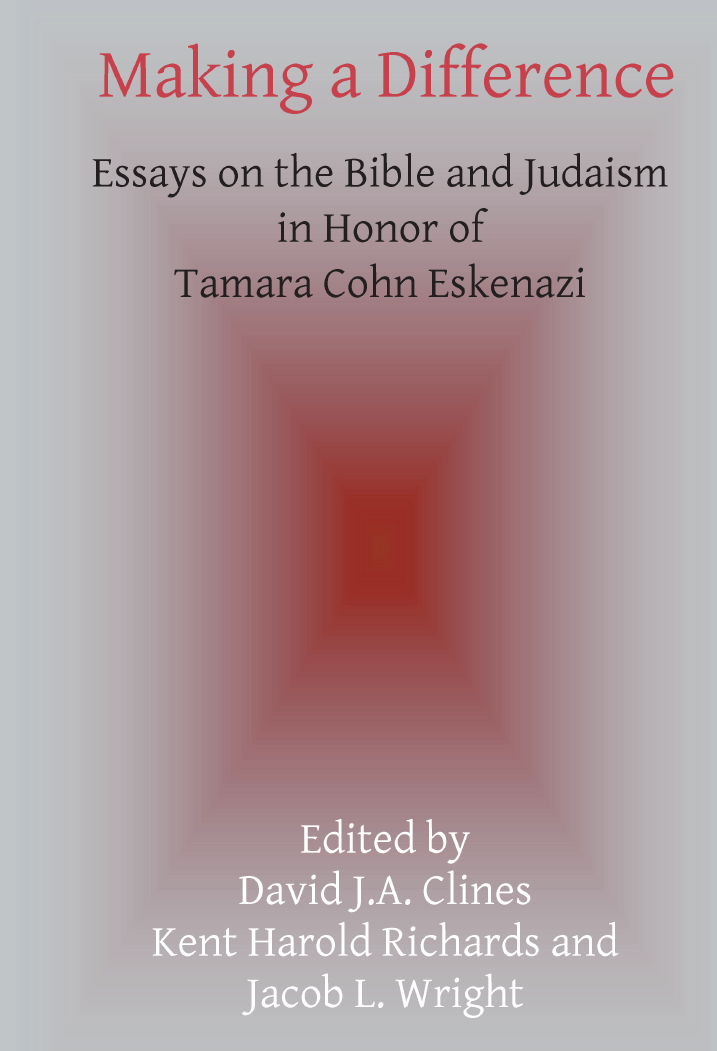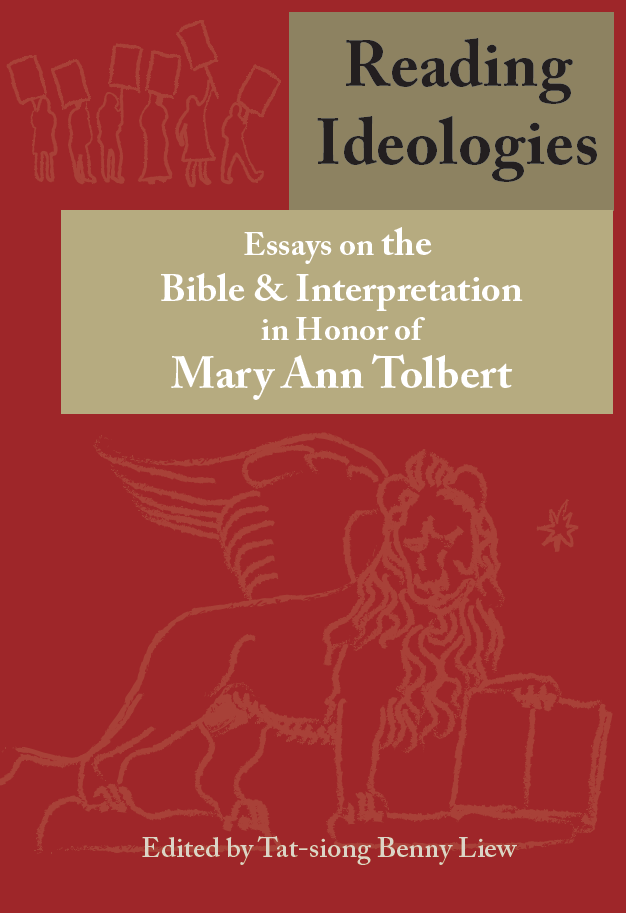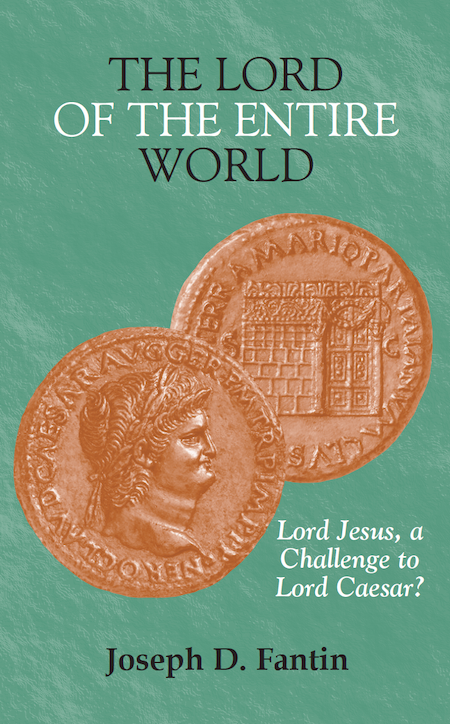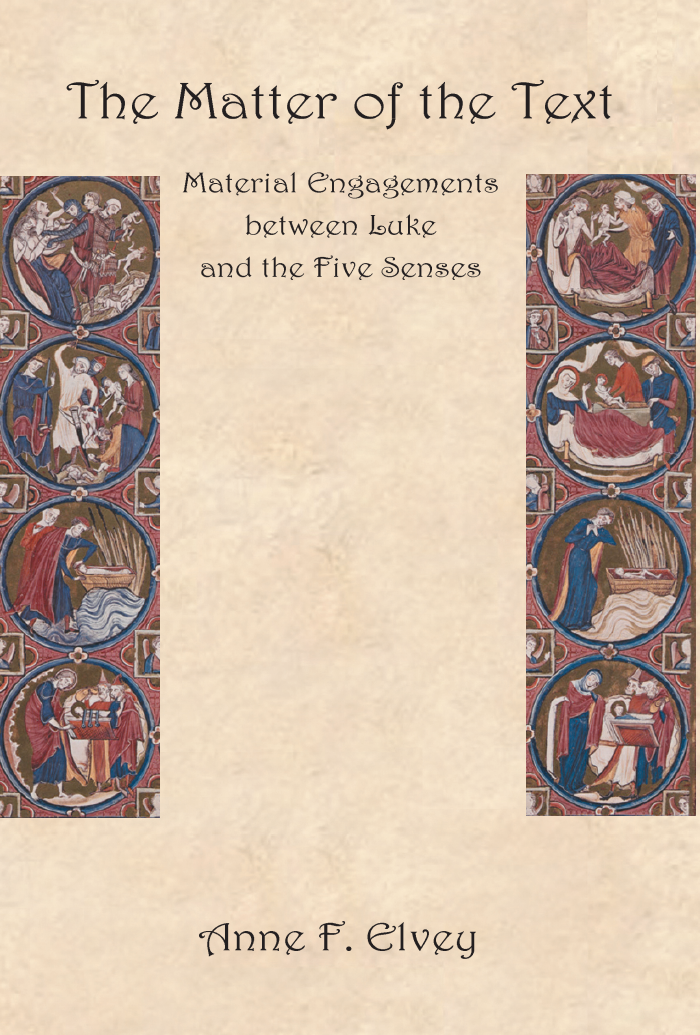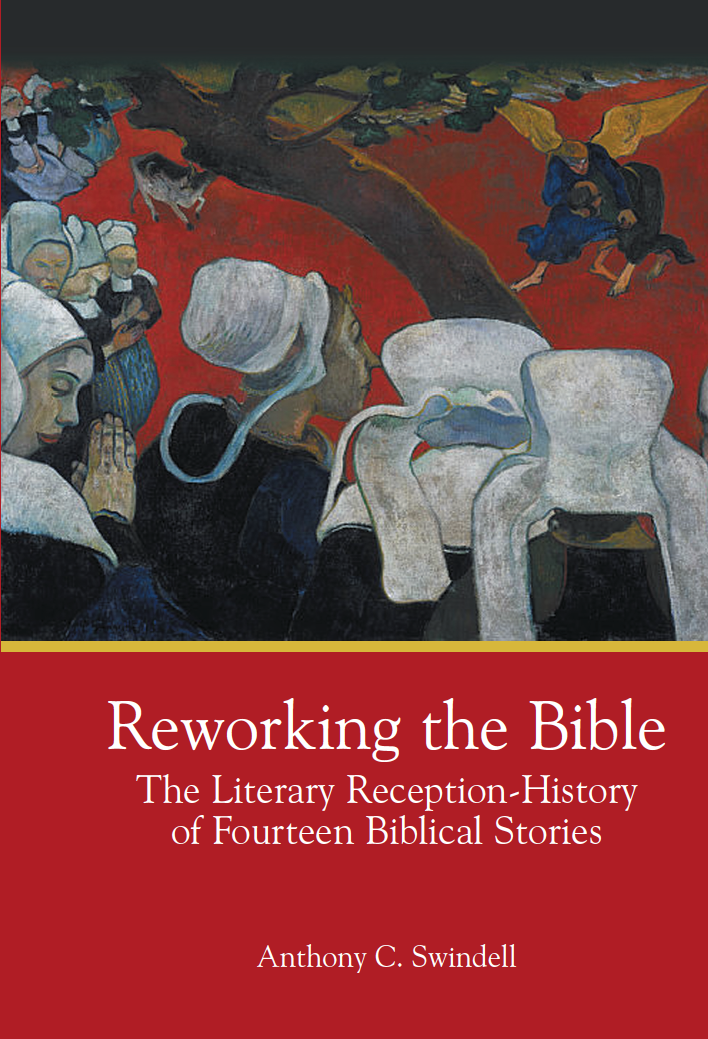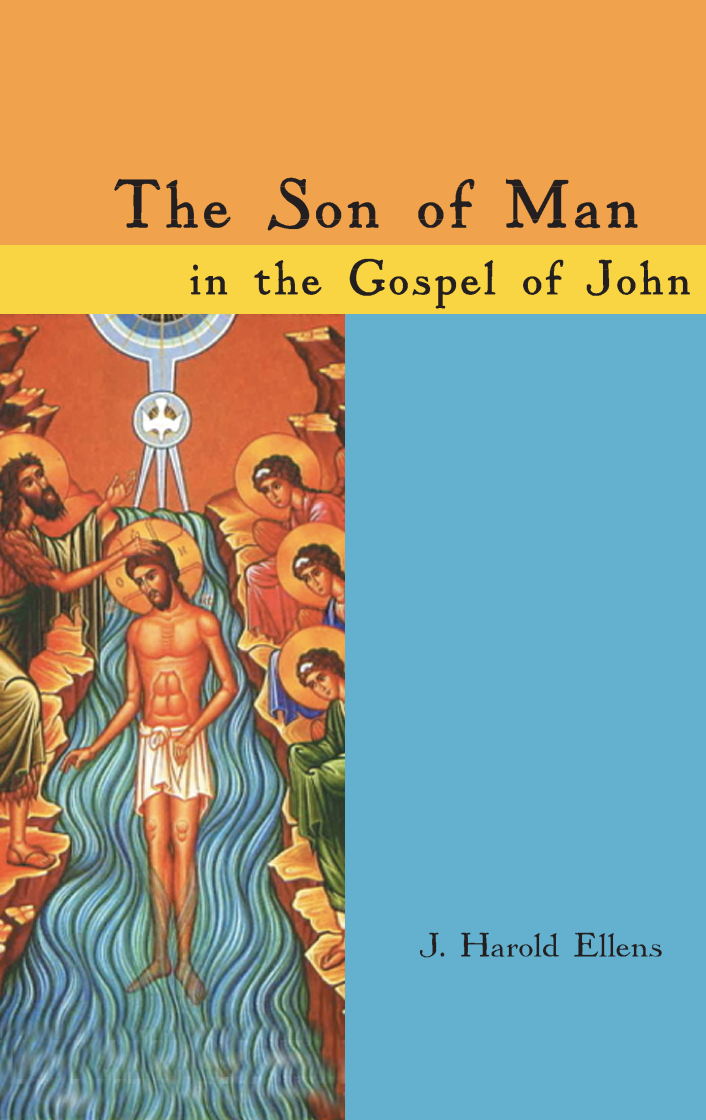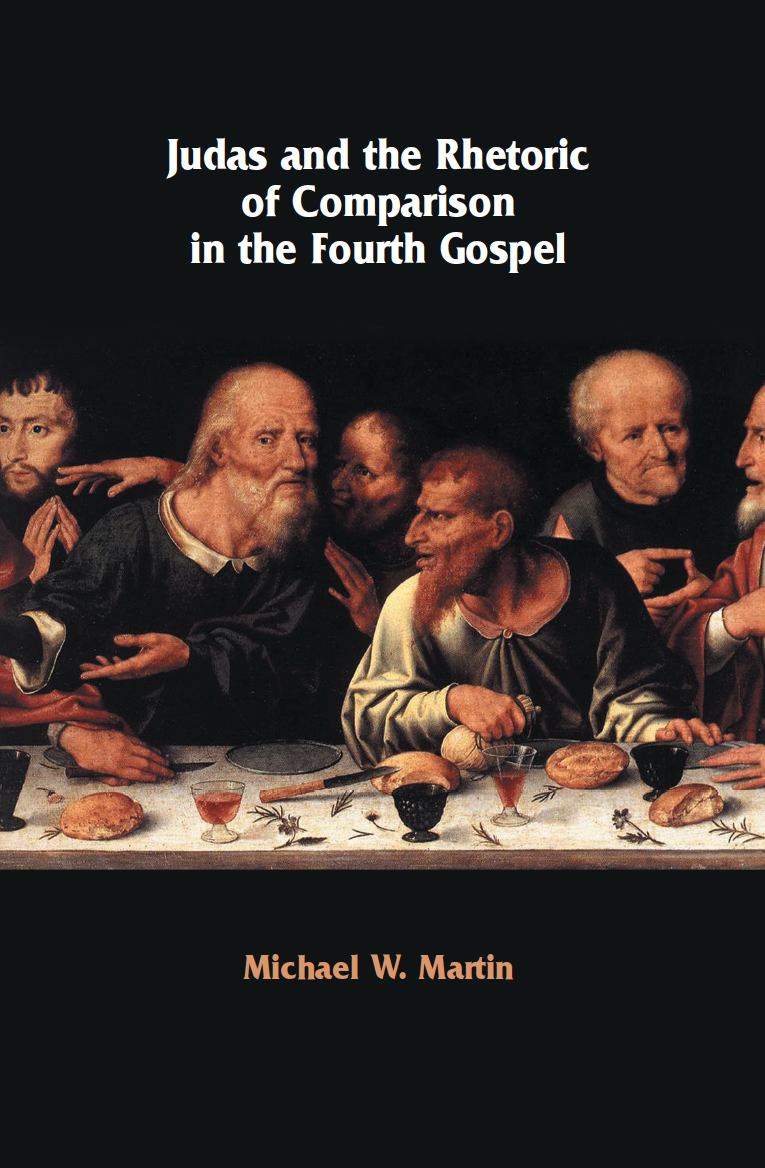The Bad Jesus: The Ethics of New Testament Ethics
Published: Apr 2015
Price range: £25.00 through £60.00
Did Jesus ever do anything wrong? Judging by the vast majority of books on New Testament ethics, the answer is a resounding No. Writers on New Testament ethics generally view Jesus as the paradigm of human standards and behaviour. But since the historical Jesus was a human being, must he not have had flaws, like everyone else?
The notion of a flawless human Jesus is a paradoxical oddity in New Testament ethics. According to Avalos, it shows that New Testament ethics is still primarily an apologetic enterprise despite its claim to rest on critical and historical scholarship.
The Bad Jesus is a powerful and challenging study, presenting detailed case studies of fundamental ethical principles enunciated or practised by Jesus but antithetical to what would be widely deemed 'acceptable' or 'good' today. Such topics include Jesus' supposedly innovative teachings on love, along with his views on hate, violence, imperialism, animal rights, environmental ethics, Judaism, women, disabled persons and biblical hermeneutics.
After closely examining arguments offered by those unwilling to find any fault with the Jesus depicted in the Gospels, Avalos concludes that current treatments of New Testament ethics are permeated by a religiocentric, ethnocentric and imperialistic orientation. But if it is to be a credible historical and critical discipline in modern academia, New Testament ethics needs to discover both a Good and a Bad Jesus.
The Bad Jesus: The Ethics of New Testament Ethics
Price range: £25.00 through £60.00
Did Jesus ever do anything wrong? Judging by the vast majority of books on New Testament ethics, the answer is a resounding No. Writers on New Testament ethics generally view Jesus as the paradigm of human standards and behaviour. But since the historical Jesus was a human being, must he not have had flaws, like everyone else?
The notion of a flawless human Jesus is a paradoxical oddity in New Testament ethics. According to Avalos, it shows that New Testament ethics is still primarily an apologetic enterprise despite its claim to rest on critical and historical scholarship.
The Bad Jesus is a powerful and challenging study, presenting detailed case studies of fundamental ethical principles enunciated or practised by Jesus but antithetical to what would be widely deemed 'acceptable' or 'good' today. Such topics include Jesus' supposedly innovative teachings on love, along with his views on hate, violence, imperialism, animal rights, environmental ethics, Judaism, women, disabled persons and biblical hermeneutics.
After closely examining arguments offered by those unwilling to find any fault with the Jesus depicted in the Gospels, Avalos concludes that current treatments of New Testament ethics are permeated by a religiocentric, ethnocentric and imperialistic orientation. But if it is to be a credible historical and critical discipline in modern academia, New Testament ethics needs to discover both a Good and a Bad Jesus.
Recent Research on Revelation
Published: Sep 2014
£60.00
Perhaps no other biblical book has been the source of as much consternation to its readers as the Revelation of John of Patmos. Their distress has been accentuated by popular approaches, which often advance sensationalist visions of the future. But did John's vision focus on the distant future, or was it directed to concerns of his own day? If it was directed to his own situation in Roman Asia Minor, what lasting significance, if any, does it have for people two thousand years after the composition of the work?
Recent Research on Revelation is an ambitious attempt to comprehend the great range of scholarly views on the Apocalypse. Avoiding popular and sensational readings of Revelation, this book outlines how scholars of various stripes grapple with John's dramatic and often disturbing book. Beginning with a historical survey of scholarly opinion, the book examines the question of what form of literature Revelation is. It then offers an overview of various methods used to interpret the Apocalypse, ranging from traditional historical-critical analysis to feminist and postcolonial criticisms.
The Apocalypse continues to evoke strong reactions in its readers, both positive and negative, from comfort to perplexity to revulsion. At the very least, it stimulates readers' interest to an extent not surpassed by any other New Testament book. We cannot shut our eyes to John's vision, for it has had too much impact on who we are, whether Christian or not.
Recent Research on Revelation
£60.00
Perhaps no other biblical book has been the source of as much consternation to its readers as the Revelation of John of Patmos. Their distress has been accentuated by popular approaches, which often advance sensationalist visions of the future. But did John's vision focus on the distant future, or was it directed to concerns of his own day? If it was directed to his own situation in Roman Asia Minor, what lasting significance, if any, does it have for people two thousand years after the composition of the work?
Recent Research on Revelation is an ambitious attempt to comprehend the great range of scholarly views on the Apocalypse. Avoiding popular and sensational readings of Revelation, this book outlines how scholars of various stripes grapple with John's dramatic and often disturbing book. Beginning with a historical survey of scholarly opinion, the book examines the question of what form of literature Revelation is. It then offers an overview of various methods used to interpret the Apocalypse, ranging from traditional historical-critical analysis to feminist and postcolonial criticisms.
The Apocalypse continues to evoke strong reactions in its readers, both positive and negative, from comfort to perplexity to revulsion. At the very least, it stimulates readers' interest to an extent not surpassed by any other New Testament book. We cannot shut our eyes to John's vision, for it has had too much impact on who we are, whether Christian or not.
On the Historicity of Jesus: Why We Might Have Reason for Doubt
Published: Jun 2014
Price range: £25.00 through £60.00
The assumption that Jesus existed as a historical person has occasionally been questioned in the course of the last hundred years or so, but any doubts that have been raised have usually been put to rest in favor of imagining a blend of the historical, the mythical and the theological in the surviving records of Jesus.
Carrier re-examines the whole question and finds compelling reasons to suspect the more daring assumption is correct. He lays out extensive research on the evidence for Jesus and the origins of Christianity and poses the key questions that must now be answered if the historicity of Jesus is to survive as a dominant paradigm.
Carrier contrasts the most credible reconstruction of a historical Jesus with the most credible theory of Christian origins if a historical Jesus did not exist. Such a theory would posit that the Jesus figure was originally conceived of as a celestial being known only through private revelations and hidden messages in scripture; then stories placing this being in earth history were crafted to communicate the claims of the gospel allegorically; such stories eventually came to be believed or promoted in the struggle for control of the Christian churches that survived the tribulations of the first century.
Carrier finds the latter theory more credible than has been previously imagined. He explains why it offers a better explanation for all the disparate evidence surviving from the first two centuries of the Christian era. He argues that we need a more careful and robust theory of cultural syncretism between Jewish theology and politics of the second-temple period and the most popular features of pagan religion and philosophy of the time. For anyone intent on defending a historical Jesus, this is the book to challenge.
On the Historicity of Jesus: Why We Might Have Reason for Doubt
Price range: £25.00 through £60.00
The assumption that Jesus existed as a historical person has occasionally been questioned in the course of the last hundred years or so, but any doubts that have been raised have usually been put to rest in favor of imagining a blend of the historical, the mythical and the theological in the surviving records of Jesus.
Carrier re-examines the whole question and finds compelling reasons to suspect the more daring assumption is correct. He lays out extensive research on the evidence for Jesus and the origins of Christianity and poses the key questions that must now be answered if the historicity of Jesus is to survive as a dominant paradigm.
Carrier contrasts the most credible reconstruction of a historical Jesus with the most credible theory of Christian origins if a historical Jesus did not exist. Such a theory would posit that the Jesus figure was originally conceived of as a celestial being known only through private revelations and hidden messages in scripture; then stories placing this being in earth history were crafted to communicate the claims of the gospel allegorically; such stories eventually came to be believed or promoted in the struggle for control of the Christian churches that survived the tribulations of the first century.
Carrier finds the latter theory more credible than has been previously imagined. He explains why it offers a better explanation for all the disparate evidence surviving from the first two centuries of the Christian era. He argues that we need a more careful and robust theory of cultural syncretism between Jewish theology and politics of the second-temple period and the most popular features of pagan religion and philosophy of the time. For anyone intent on defending a historical Jesus, this is the book to challenge.
The Bible, Justice and Public Theology
Published: May 2014
£60.00
Public theology is a developing field of discourse concerned to address matters of pressing public concern in theological perspective for the common good. Themes of ecology, poverty, human rights and especially justice feature prominently in its discourse. Although justice is also a prominent theme in the Bible, there is no single perspective on what constitutes justice in the Bible and no single view on how biblical perspectives on justice should contribute to contemporary discussion regarding the meaning and implementation of justice.
Informed and inspired by Christopher Marshall's landmark work on Compassionate Justice (Cascade Books, 2012) in dialogue with Jesus' parables of the Good Samaritan and the Prodigal Son, this collection of studies addresses various interrelations between the Bible, justice and public theology. Marshall himself proposes that certain parables of Jesus are paradigmatic for public theology, and some contributors respond to different dimensions of his treatment of the parables of the Good Samaritan and the Prodigal Son in terms of restorative justice.
Other contributors, by contrast, examine broader related concerns such as justice in biblical, theological and philosophical perspective, the hermeneutics of engagement for justice, the relation between feminist theology and restorative justice, biblical resources for public theology, and popular culture as both a conversation partner with and a medium for public theology.
The Bible, Justice and Public Theology
£60.00
Public theology is a developing field of discourse concerned to address matters of pressing public concern in theological perspective for the common good. Themes of ecology, poverty, human rights and especially justice feature prominently in its discourse. Although justice is also a prominent theme in the Bible, there is no single perspective on what constitutes justice in the Bible and no single view on how biblical perspectives on justice should contribute to contemporary discussion regarding the meaning and implementation of justice.
Informed and inspired by Christopher Marshall's landmark work on Compassionate Justice (Cascade Books, 2012) in dialogue with Jesus' parables of the Good Samaritan and the Prodigal Son, this collection of studies addresses various interrelations between the Bible, justice and public theology. Marshall himself proposes that certain parables of Jesus are paradigmatic for public theology, and some contributors respond to different dimensions of his treatment of the parables of the Good Samaritan and the Prodigal Son in terms of restorative justice.
Other contributors, by contrast, examine broader related concerns such as justice in biblical, theological and philosophical perspective, the hermeneutics of engagement for justice, the relation between feminist theology and restorative justice, biblical resources for public theology, and popular culture as both a conversation partner with and a medium for public theology.
Poverty, Wealth, and Empire: Jesus and Postcolonial Criticism
Published: Mar 2014
£45.00
Poverty, Wealth, and Empire presents an antidote to the liberal Jesuses that are constantly being constructed by theologians and historians in universities and seminaries in the West. Sandford's programme is to pay attention to those texts where Jesus appears hostile to his audiences, or even invokes the idea of divine judgment and violence against certain groups. Drawing on a variety of texts in the synoptic gospels, Sandford finds violent denouncements of the rich and those who neglect the needy to be a consistent theme in Jesus' teaching.
Rather than deploying biblical texts to support an anti-imperial or liberationist agenda, Sandford foregrounds troubling and problematic texts. Among them are wisdom sayings that justify poverty, texts that denigrate particular ethnic groups, and the ideology inherent in Jesus' teachings about the 'the Kingdom of God'. On such a basis Sandford is able to call into question the effectiveness of mainline Christian scholarly interpretations of Jesus in dealing with the most profound ethical problems of our time: poverty, domination and violence.
Always alert to the assumptions and prejudices of much Western New Testament scholarship, Sandford draws attention to its intellectual contradictions, and, furthermore, to the way in which this scholarship has sometimes served to undergird and justify systems of oppression —in particular by its demonstrable dodging of the issue of material poverty and its causes. Building on recent debates in postcolonial biblical criticism, Sandford offers a decidedly 'illiberal' reading of Jesus' sayings on divine judgment, focusing on the paradoxical idea of a 'nonviolent' Jesus who nevertheless pronounces divine violence upon the rich.
Poverty, Wealth, and Empire: Jesus and Postcolonial Criticism
£45.00
Poverty, Wealth, and Empire presents an antidote to the liberal Jesuses that are constantly being constructed by theologians and historians in universities and seminaries in the West. Sandford's programme is to pay attention to those texts where Jesus appears hostile to his audiences, or even invokes the idea of divine judgment and violence against certain groups. Drawing on a variety of texts in the synoptic gospels, Sandford finds violent denouncements of the rich and those who neglect the needy to be a consistent theme in Jesus' teaching.
Rather than deploying biblical texts to support an anti-imperial or liberationist agenda, Sandford foregrounds troubling and problematic texts. Among them are wisdom sayings that justify poverty, texts that denigrate particular ethnic groups, and the ideology inherent in Jesus' teachings about the 'the Kingdom of God'. On such a basis Sandford is able to call into question the effectiveness of mainline Christian scholarly interpretations of Jesus in dealing with the most profound ethical problems of our time: poverty, domination and violence.
Always alert to the assumptions and prejudices of much Western New Testament scholarship, Sandford draws attention to its intellectual contradictions, and, furthermore, to the way in which this scholarship has sometimes served to undergird and justify systems of oppression —in particular by its demonstrable dodging of the issue of material poverty and its causes. Building on recent debates in postcolonial biblical criticism, Sandford offers a decidedly 'illiberal' reading of Jesus' sayings on divine judgment, focusing on the paradoxical idea of a 'nonviolent' Jesus who nevertheless pronounces divine violence upon the rich.
Encountering Violence in the Bible
Published: Oct 2013
£60.00
Our world is full of violence, with repeated acts of terrorism and generally rising rates of violent criminal acts as the most obvious forms of the phenomenon in the Western world. It even reached the peaceful shores of Norway in the summer of 2011. This was one of the reasons why the first international meeting of the Norwegian Summer Academy for Biblical Studies was devoted to the topic 'Violence as an Ethical Challenge in the Bible'.
Eighteen biblical scholars from nine different countries (Joshua Berman, Lennart Bostršm, Friedmann Eissler, Torleif Elgvin, LarsOlov Eriksson, Karin Finsterbusch, Georg Fischer, Terence E. Fretheim, Hallvard Hagelia, Dana M. Harris, Robert L. Hubbard, Jr, ÌÉrstein Justnes, Gordon McConville, Kirsten Nielsen, Tommy Wasserman, Karl William Weyde, Peter Wick and Markus Zehnder) met on the beautiful premises of Ansgar Theological Seminary to discuss some of the most fundamental aspects of the topic. The papers presented at the conference are collected in the present volume, dealing mostly with the Hebrew Bible, but covering also the New Testament, Jewish literature from the Second Temple period and the Qur'an.
The contributions reflect a refreshing variety of scholarly and theological approaches. One of the fundamental questions addressed in several studies is how biblical texts justifying violence can be properly understood and used today. Other questions raised are how violent some of the often-criticized biblical passages really are and how violence can be overcome.
Encountering Violence in the Bible
£60.00
Our world is full of violence, with repeated acts of terrorism and generally rising rates of violent criminal acts as the most obvious forms of the phenomenon in the Western world. It even reached the peaceful shores of Norway in the summer of 2011. This was one of the reasons why the first international meeting of the Norwegian Summer Academy for Biblical Studies was devoted to the topic 'Violence as an Ethical Challenge in the Bible'.
Eighteen biblical scholars from nine different countries (Joshua Berman, Lennart Bostršm, Friedmann Eissler, Torleif Elgvin, LarsOlov Eriksson, Karin Finsterbusch, Georg Fischer, Terence E. Fretheim, Hallvard Hagelia, Dana M. Harris, Robert L. Hubbard, Jr, ÌÉrstein Justnes, Gordon McConville, Kirsten Nielsen, Tommy Wasserman, Karl William Weyde, Peter Wick and Markus Zehnder) met on the beautiful premises of Ansgar Theological Seminary to discuss some of the most fundamental aspects of the topic. The papers presented at the conference are collected in the present volume, dealing mostly with the Hebrew Bible, but covering also the New Testament, Jewish literature from the Second Temple period and the Qur'an.
The contributions reflect a refreshing variety of scholarly and theological approaches. One of the fundamental questions addressed in several studies is how biblical texts justifying violence can be properly understood and used today. Other questions raised are how violent some of the often-criticized biblical passages really are and how violence can be overcome.
The Death and Resurrection of the Author and Other Feminist Essays on the Bible
Published: Oct 2012
£45.00
Jane Dewar Schaberg (1938 —2012) is widely recognized as one of the foremothers of feminist biblical studies in North America, best known for her ground-breaking and controversial works, The Illegitimacy of Jesus (1987) and The Resurrection of Mary Magdalene (2002). The present volume brings together fourteen of her essays on feminist approaches to scholarship and teaching, studies on women in the Christian Scriptures, feminist scholarship and modern media, and responses to backlash against feminism. Many of these essays appear here for the first time. Included also are several of Schaberg's important essays on Mary Magdalene as well as new essays in which she explores further her proposal for 'Magdalene Christianity'.
These studies will be of interest not only to scholars, but also those teaching courses on women and the Bible, women's studies, religion and media, and the history of early Christianity. A distinctive feature of this volume is the way in which it honors the feminist commitment to acknowledging the voice and presence of the author in the text. Each of the five sections is introduced by a brief autobiographical sketch that invites the reader to hear the essays in dialogue with the context of Schaberg's life. These sketches offer the reader a glimpse of the values, commitments, and struggles that are the substratum out of which the scholarly essays emerge. Also woven throughout the volume are several of Schaberg's poems, providing commentary on the essays and drawing them into conversation with Schaberg's life experiences.
Together, the essays, autobiographical sketches and poems speak to the importance of claiming one's own voice and identifying absent voices in the texts. They also speak to the importance of recognizing the context(s) in which one reads and writes, and the need to uncover the hard realities that silence many voices within those contexts. The volume is, in short, a stunning and remarkable representation of a life dedicated to feminist scholarship. For those who read it, it is also a call to action.
The Death and Resurrection of the Author and Other Feminist Essays on the Bible
£45.00
Jane Dewar Schaberg (1938 —2012) is widely recognized as one of the foremothers of feminist biblical studies in North America, best known for her ground-breaking and controversial works, The Illegitimacy of Jesus (1987) and The Resurrection of Mary Magdalene (2002). The present volume brings together fourteen of her essays on feminist approaches to scholarship and teaching, studies on women in the Christian Scriptures, feminist scholarship and modern media, and responses to backlash against feminism. Many of these essays appear here for the first time. Included also are several of Schaberg's important essays on Mary Magdalene as well as new essays in which she explores further her proposal for 'Magdalene Christianity'.
These studies will be of interest not only to scholars, but also those teaching courses on women and the Bible, women's studies, religion and media, and the history of early Christianity. A distinctive feature of this volume is the way in which it honors the feminist commitment to acknowledging the voice and presence of the author in the text. Each of the five sections is introduced by a brief autobiographical sketch that invites the reader to hear the essays in dialogue with the context of Schaberg's life. These sketches offer the reader a glimpse of the values, commitments, and struggles that are the substratum out of which the scholarly essays emerge. Also woven throughout the volume are several of Schaberg's poems, providing commentary on the essays and drawing them into conversation with Schaberg's life experiences.
Together, the essays, autobiographical sketches and poems speak to the importance of claiming one's own voice and identifying absent voices in the texts. They also speak to the importance of recognizing the context(s) in which one reads and writes, and the need to uncover the hard realities that silence many voices within those contexts. The volume is, in short, a stunning and remarkable representation of a life dedicated to feminist scholarship. For those who read it, it is also a call to action.
Making a Difference: Essays on the Bible and Judaism in Honor of Tamara Cohn Eskenazi
Published: Oct 2012
£75.00
Tamara Cohn Eskenazi has a special place in contemporary biblical scholarship. Among the first to bring a focus of scholarly attention to the period of ancient Israel's creativity after the Exile, she has also been a leader in foregrounding the Jewish tradition within the interpretative discourse of biblical scholars. And as a woman scholar, she has advanced the study of issues in the Hebrew Bible that impinge on the concerns of women ancient and modern.
Tamara Eskenazi was awarded the 2008 National Jewish Book Award for her volume The Torah: A Women's Commentary and the 2011 National Jewish Book Award in Women's Studies for her commentary on Ruth in the Jewish Publication Society Bible Commentary series.
The 26 articles offered to Tamara Eskenazi by her friends in this volume represent the range of her interests in all things biblical and Jewish. From the Book of Genesis to the New Testament to modern Hebrew fiction, from technical studies on the prophets or Qumran to penetrating insights on her beloved philosopher Levinas, this volume beautifully represents the range and depth of Jewish culture.
Making a Difference: Essays on the Bible and Judaism in Honor of Tamara Cohn Eskenazi
£75.00
Tamara Cohn Eskenazi has a special place in contemporary biblical scholarship. Among the first to bring a focus of scholarly attention to the period of ancient Israel's creativity after the Exile, she has also been a leader in foregrounding the Jewish tradition within the interpretative discourse of biblical scholars. And as a woman scholar, she has advanced the study of issues in the Hebrew Bible that impinge on the concerns of women ancient and modern.
Tamara Eskenazi was awarded the 2008 National Jewish Book Award for her volume The Torah: A Women's Commentary and the 2011 National Jewish Book Award in Women's Studies for her commentary on Ruth in the Jewish Publication Society Bible Commentary series.
The 26 articles offered to Tamara Eskenazi by her friends in this volume represent the range of her interests in all things biblical and Jewish. From the Book of Genesis to the New Testament to modern Hebrew fiction, from technical studies on the prophets or Qumran to penetrating insights on her beloved philosopher Levinas, this volume beautifully represents the range and depth of Jewish culture.
The Death of Judas: The Characterization of Judas Iscariot in Three Early Christian Accounts of His Death
Published: Oct 2012
£60.00
Images of Judas across the centuries of Christian interpretation predominantly depict him as an object of horror and condemnation. Some modern interpreters have argued, however, that details about Judas in the canonical Gospels, such as his remorse and suicide, are tragic elements that vindicate Judas, to some extent at least. In addition, the recent discovery of the Gospel of Judas has provided further evidence that even in antiquity there were widely differing views of Judas. The question of the characterization of Judas in early Christianity remains open.
Ancient rhetorical handbooks and countless examples from the literature of the Greco-Roman period reveal that death-accounts were regarded as fertile opportunities for shaping the characterization of a figure. Authors and audiences shared the expectation that the manner of a person's death revealed character. This insight provides a new window into the interpretation of Judas in the early Christian era, since three accounts of the death of Judas have survived from before 150 CE through the Gospel of Matthew, the Acts of the Apostles, and the fragments of Papias.
Strategies for encomium and invective, and other elements of Greco-Roman and Jewish literary portraiture, vividly reveal the character-shaping significance of the details in the accounts of Judas's death. His final words, final actions, and the mode of his death —whether suicide by hanging, falling headlong and bursting, or swelling to the size of a wagon —all would have been understood to signify Judas's inner qualities and indicate his moral worth. To ancient auditors, the characterization of Judas in these texts could lead only to the assessment of Jesus, 'Woe to that one by whom the Son of Man is betrayed! It would have been better for that one not to have been born' (Matt. 26.24).
The Death of Judas: The Characterization of Judas Iscariot in Three Early Christian Accounts of His Death
£60.00
Images of Judas across the centuries of Christian interpretation predominantly depict him as an object of horror and condemnation. Some modern interpreters have argued, however, that details about Judas in the canonical Gospels, such as his remorse and suicide, are tragic elements that vindicate Judas, to some extent at least. In addition, the recent discovery of the Gospel of Judas has provided further evidence that even in antiquity there were widely differing views of Judas. The question of the characterization of Judas in early Christianity remains open.
Ancient rhetorical handbooks and countless examples from the literature of the Greco-Roman period reveal that death-accounts were regarded as fertile opportunities for shaping the characterization of a figure. Authors and audiences shared the expectation that the manner of a person's death revealed character. This insight provides a new window into the interpretation of Judas in the early Christian era, since three accounts of the death of Judas have survived from before 150 CE through the Gospel of Matthew, the Acts of the Apostles, and the fragments of Papias.
Strategies for encomium and invective, and other elements of Greco-Roman and Jewish literary portraiture, vividly reveal the character-shaping significance of the details in the accounts of Judas's death. His final words, final actions, and the mode of his death —whether suicide by hanging, falling headlong and bursting, or swelling to the size of a wagon —all would have been understood to signify Judas's inner qualities and indicate his moral worth. To ancient auditors, the characterization of Judas in these texts could lead only to the assessment of Jesus, 'Woe to that one by whom the Son of Man is betrayed! It would have been better for that one not to have been born' (Matt. 26.24).
Beyond the Quest for the Historical Jesus: Memoir of a Discovery
Published: Sep 2012
£18.95
In the past forty years, while historical-critical studies were seeking with renewed intensity to reconstruct events behind the biblical texts, not least the life of Jesus, two branches of literary studies were finally reaching maturity. First, researchers were recognizing that many biblical texts are rewritings or transformations of older texts that still exist, thus giving a clearer sense of where the biblical texts came from; and second, studies in the ancient art of composition clarified the biblical texts' unity and purpose, that is to say, where biblical texts were headed.
The primary literary model behind the gospels, Brodie argues, is the biblical account of Elijah and Elisha, as R.E. Brown already saw in 1971. In this fascinating memoir of his life journey, Tom Brodie, Irishman, Dominican priest, and biblical scholar, recounts the steps he has taken, in an eventful life in many countries, to his conclusion that the New Testament account of Jesus is essentially a rewriting of the Septuagint version of the Hebrew Bible, or, in some cases, of earlier New Testament texts. Jesus' challenge to would-be disciples (Luke 9.57-62), for example, is a transformation of the challenge to Elijah at Horeb (1 Kings 19), while his journey from Jerusalem and Judea to Samaria and beyond (John 2.23 —4.54) is deeply indebted to the account of the journey of God's Word in Acts 1 —8.
The work of tracing literary indebtedness and art is far from finished but it is already possible and necessary to draw a conclusion: it is that, bluntly, Jesus did not exist as a historical individual. This is not as negative as may at first appear. In a deeply personal coda, Brodie begins to develop a new vision of Jesus as an icon of God's presence in the world and in human history.
Beyond the Quest for the Historical Jesus: Memoir of a Discovery
£18.95
In the past forty years, while historical-critical studies were seeking with renewed intensity to reconstruct events behind the biblical texts, not least the life of Jesus, two branches of literary studies were finally reaching maturity. First, researchers were recognizing that many biblical texts are rewritings or transformations of older texts that still exist, thus giving a clearer sense of where the biblical texts came from; and second, studies in the ancient art of composition clarified the biblical texts' unity and purpose, that is to say, where biblical texts were headed.
The primary literary model behind the gospels, Brodie argues, is the biblical account of Elijah and Elisha, as R.E. Brown already saw in 1971. In this fascinating memoir of his life journey, Tom Brodie, Irishman, Dominican priest, and biblical scholar, recounts the steps he has taken, in an eventful life in many countries, to his conclusion that the New Testament account of Jesus is essentially a rewriting of the Septuagint version of the Hebrew Bible, or, in some cases, of earlier New Testament texts. Jesus' challenge to would-be disciples (Luke 9.57-62), for example, is a transformation of the challenge to Elijah at Horeb (1 Kings 19), while his journey from Jerusalem and Judea to Samaria and beyond (John 2.23 —4.54) is deeply indebted to the account of the journey of God's Word in Acts 1 —8.
The work of tracing literary indebtedness and art is far from finished but it is already possible and necessary to draw a conclusion: it is that, bluntly, Jesus did not exist as a historical individual. This is not as negative as may at first appear. In a deeply personal coda, Brodie begins to develop a new vision of Jesus as an icon of God's presence in the world and in human history.
Reading Ideologies: Essays on the Bible and Interpretation in Honor of Mary Ann Tolbert
Published: Sep 2011
£75.00
Mary Ann Tolbert has been a pioneering voice in what we have now come to call 'interdisciplinary reading' of the Bible. In the early stages of her career, Tolbert used New Testament parables to push biblical scholarship beyond the traditional confines of historical-critical methods. Over the past four decades, she has made significant contributions to psychoanalytical, narrative, rhetorical, feminist, and queer readings of the Bible, and has interrogated the social location of biblical interpreters as well as the ideological implications of reading and reading methodologies.
Divided into three main sections, this collection of essays from biblical scholars around the world to honor Tolbert engage the very issues that have driven and defined Tolbert's scholarship: reading between the historical and the literary; reading between biblical authority and social location; and reading between gender and sexuality. The title of the collection focuses on an often-used but arguably under-examined term in biblical studies: 'ideology'. Together, essays in this volume not only perform ideological criticism of the Bible but also profess the ideological nature of criticism itself, since —regardless of 'what' and 'how' one is reading —the act of reading is always already infused with ideology. By highlighting the work of ideology in interpretation, this volume ultimately suggests that while ideology impacts interpretation of meaning, the meaning of ideology itself also needs to be interpreted.
Reading Ideologies: Essays on the Bible and Interpretation in Honor of Mary Ann Tolbert
£75.00
Mary Ann Tolbert has been a pioneering voice in what we have now come to call 'interdisciplinary reading' of the Bible. In the early stages of her career, Tolbert used New Testament parables to push biblical scholarship beyond the traditional confines of historical-critical methods. Over the past four decades, she has made significant contributions to psychoanalytical, narrative, rhetorical, feminist, and queer readings of the Bible, and has interrogated the social location of biblical interpreters as well as the ideological implications of reading and reading methodologies.
Divided into three main sections, this collection of essays from biblical scholars around the world to honor Tolbert engage the very issues that have driven and defined Tolbert's scholarship: reading between the historical and the literary; reading between biblical authority and social location; and reading between gender and sexuality. The title of the collection focuses on an often-used but arguably under-examined term in biblical studies: 'ideology'. Together, essays in this volume not only perform ideological criticism of the Bible but also profess the ideological nature of criticism itself, since —regardless of 'what' and 'how' one is reading —the act of reading is always already infused with ideology. By highlighting the work of ideology in interpretation, this volume ultimately suggests that while ideology impacts interpretation of meaning, the meaning of ideology itself also needs to be interpreted.
The Letter to the Romans: Salvation as Justice and the Deconstruction of Law
Published: Sep 2011
£70.00
Romans, says Waetjen, is the first publication of the Christ movement. To understand it well is therefore a task of monumental importance, and to understand it today requires a postmodern hermeneutics, in which the interpreter's subjective experience of reading the text is correlated with historical-critical knowledge and social-scientific criticism. That hermeneutics has to create a new genre of commentary, making room for readers' prior understandings as well as for a dynamic form of close reading and consistency building. The outcome is a contemporizing of Paul's theology that induces conversation with Derrida, Žižek, Badiou and Agamben and others.
The central theme of Romans is, according to Waetjen, the healing of humanity through the realization of 'the justice of God', which is disclosed in the movement 'out of trust into trust', or, more specifically, out of the trust of Abraham into the trust of Jesus Christ. Living on this side of the law of Sinai and therefore being conscious of the condition of sin requires the reconciliation of Christ's death and the justification of Christ's resurrection in order to participate in the New Humanity of life-giving spirits.
Consequently Romans is more than a rhetorical effort to mediate conflicts between Jewish and Gentile believers in Rome. Composed prior to his journey to Jerusalem with the possibility of martyrdom before him, the letter is Paul's major theological testament.
The Letter to the Romans: Salvation as Justice and the Deconstruction of Law
£70.00
Romans, says Waetjen, is the first publication of the Christ movement. To understand it well is therefore a task of monumental importance, and to understand it today requires a postmodern hermeneutics, in which the interpreter's subjective experience of reading the text is correlated with historical-critical knowledge and social-scientific criticism. That hermeneutics has to create a new genre of commentary, making room for readers' prior understandings as well as for a dynamic form of close reading and consistency building. The outcome is a contemporizing of Paul's theology that induces conversation with Derrida, Žižek, Badiou and Agamben and others.
The central theme of Romans is, according to Waetjen, the healing of humanity through the realization of 'the justice of God', which is disclosed in the movement 'out of trust into trust', or, more specifically, out of the trust of Abraham into the trust of Jesus Christ. Living on this side of the law of Sinai and therefore being conscious of the condition of sin requires the reconciliation of Christ's death and the justification of Christ's resurrection in order to participate in the New Humanity of life-giving spirits.
Consequently Romans is more than a rhetorical effort to mediate conflicts between Jewish and Gentile believers in Rome. Composed prior to his journey to Jerusalem with the possibility of martyrdom before him, the letter is Paul's major theological testament.
The Lord of the Entire World: Lord Jesus, a Challenge to Lord Caesar?
Published: Aug 2011
£70.00
How would the confession, 'Jesus is Lord', have been understood in the first-century Roman world? Was it more than a statement of one's devotion to Jesus? Was it also an implicit challenge to the living Caesar, the lord of the Roman empire?
There were many lords in the first century and the use of the title kyrios was complex. Clearly Paul was influenced by the use of this title for Yahweh in the Greek Old Testament. But he was also part of a culture in which the title was used for many persons, including fathers, slave owners, government officials —and the emperor.
However, the title kyrios was used sparingly of emperors in the early and mid-first century. On the basis of the extant evidence, scholars since Deissmann have come to differing conclusions as to whether a challenge to the emperor is contained in the phrase.
Fantin proposes a more powerful method of resolving the question, drawing upon the insights of relevance theory. He examines a whole range of persons referred to with this title, and evaluates the potential influence of such contexts on Paul's usage. Only then is it possible to draw compelling conclusions on whether any challenge is likely to be implied.
In The Lord of the Entire World, Fantin shows that the living Caesar was indeed acknowledged in Paul's time as the supreme lord of the Roman world. Key New Testament texts such as Romans 10.9, 1 Corinthians 8.6 and Philippians 2.11 show that in all likelihood the Christian confession was in fact a challenge to imperial authority.
The Lord of the Entire World: Lord Jesus, a Challenge to Lord Caesar?
£70.00
How would the confession, 'Jesus is Lord', have been understood in the first-century Roman world? Was it more than a statement of one's devotion to Jesus? Was it also an implicit challenge to the living Caesar, the lord of the Roman empire?
There were many lords in the first century and the use of the title kyrios was complex. Clearly Paul was influenced by the use of this title for Yahweh in the Greek Old Testament. But he was also part of a culture in which the title was used for many persons, including fathers, slave owners, government officials —and the emperor.
However, the title kyrios was used sparingly of emperors in the early and mid-first century. On the basis of the extant evidence, scholars since Deissmann have come to differing conclusions as to whether a challenge to the emperor is contained in the phrase.
Fantin proposes a more powerful method of resolving the question, drawing upon the insights of relevance theory. He examines a whole range of persons referred to with this title, and evaluates the potential influence of such contexts on Paul's usage. Only then is it possible to draw compelling conclusions on whether any challenge is likely to be implied.
In The Lord of the Entire World, Fantin shows that the living Caesar was indeed acknowledged in Paul's time as the supreme lord of the Roman world. Key New Testament texts such as Romans 10.9, 1 Corinthians 8.6 and Philippians 2.11 show that in all likelihood the Christian confession was in fact a challenge to imperial authority.
The Matter of the Text: Material Engagements Between Luke and the Five Senses
Published: May 2011
£60.00
When the Lukan Jesus stands up to read in the Nazareth synagogue, he unrolls and rolls up a scroll. At this moment —which scholars have read as programmatic for the Gospel of Luke —the material text frames the written and spoken word. Here reading is an engagement with the senses of touch, sight and hearing. The organs of sense —skin, eyes, ears and mouth —function as mediators of the material text.
By contrast, our contemporary practices of reading as biblical scholars and critics commonly ignore the underlying materiality that is given to writing. In an ecological context where the mass production of Bibles is part of a consumerist economics that does not walk lightly on the Earth, and in an Australian postcolonial context where Bibles arrived as material artefacts of European colonizers, this book asks what modes of reading might best be suited to the materiality of the text. Engaging with the Gospel of Luke and the five senses, The Matter of the Text enacts a mode of reading that attends to the underlying materiality of the text.
Reading with the senses offers a way of imagining the mutual touching of artefact and writing and the absent presence of the material text, where matter is given to the word as a visible voice.
The Matter of the Text: Material Engagements Between Luke and the Five Senses
£60.00
When the Lukan Jesus stands up to read in the Nazareth synagogue, he unrolls and rolls up a scroll. At this moment —which scholars have read as programmatic for the Gospel of Luke —the material text frames the written and spoken word. Here reading is an engagement with the senses of touch, sight and hearing. The organs of sense —skin, eyes, ears and mouth —function as mediators of the material text.
By contrast, our contemporary practices of reading as biblical scholars and critics commonly ignore the underlying materiality that is given to writing. In an ecological context where the mass production of Bibles is part of a consumerist economics that does not walk lightly on the Earth, and in an Australian postcolonial context where Bibles arrived as material artefacts of European colonizers, this book asks what modes of reading might best be suited to the materiality of the text. Engaging with the Gospel of Luke and the five senses, The Matter of the Text enacts a mode of reading that attends to the underlying materiality of the text.
Reading with the senses offers a way of imagining the mutual touching of artefact and writing and the absent presence of the material text, where matter is given to the word as a visible voice.
The Flesh Was Made Word: A Metahistorical Critique of the Contemporary Quest of the Historical Jesus
Published: Nov 2010
£50.00
The 'historical Jesus' still remains elusive. Who was Jesus? What really happened? How can we know for sure? The latest quest for the truth about him comes at a time marked by radical uncertainty and postmodern scepticism about master narratives, along with a loss of confidence in the traditional methods of historical analysis.
In this context, Susan Lochrie Graham approaches the old debates from an entirely new direction. Armed with a 'metahistorical' approach adapted from the work of Hayden White, the philosopher of history, she reads the work of four representative historical Jesus writers: John P. Meier, N.T. Wright, Elisabeth Schüssler Fiorenza and John Dominic Crossan. The analysis brings to light the deep literary structures of their portraits, showing the differing plots and rhetorical concepts that shape them, and the types of argument that are deployed by each writer.
This ground-breaking critical investigation exposes the theological and cultural meanings embedded in all historical Jesus writing, showing how narrative forms function ideologically. It concludes with fresh answers to questions both about the methods we use and about the social implications of the contemporary quest of the historical Jesus, and proposes different directions for future research.
The Flesh Was Made Word: A Metahistorical Critique of the Contemporary Quest of the Historical Jesus
£50.00
The 'historical Jesus' still remains elusive. Who was Jesus? What really happened? How can we know for sure? The latest quest for the truth about him comes at a time marked by radical uncertainty and postmodern scepticism about master narratives, along with a loss of confidence in the traditional methods of historical analysis.
In this context, Susan Lochrie Graham approaches the old debates from an entirely new direction. Armed with a 'metahistorical' approach adapted from the work of Hayden White, the philosopher of history, she reads the work of four representative historical Jesus writers: John P. Meier, N.T. Wright, Elisabeth Schüssler Fiorenza and John Dominic Crossan. The analysis brings to light the deep literary structures of their portraits, showing the differing plots and rhetorical concepts that shape them, and the types of argument that are deployed by each writer.
This ground-breaking critical investigation exposes the theological and cultural meanings embedded in all historical Jesus writing, showing how narrative forms function ideologically. It concludes with fresh answers to questions both about the methods we use and about the social implications of the contemporary quest of the historical Jesus, and proposes different directions for future research.
Echoes of Friendship in the Gospel of John
Published: Oct 2010
£60.00
Friendship in the Graeco-Roman world took a wide variety of forms, with some 'friendships' involving nothing more than a political alliance or patron —client relationship and others involving deep personal intimacy. When Jesus says his disciples are to be called 'friends', what type of friendship does he have in mind?
Friendship may seem a relatively insignificant motif in the Gospel of John, since the author does not explicitly set out to provide a philosophical discourse on the nature of friendship, nor does he explicitly state that the narrative is about friendship. In this study, however, Culy, having carefully examined Graeco-Roman literature on friendship, demonstrates that the language of what he calls 'ideal friendship' actually pervades the Fourth Gospel from beginning to end and serves as a primary vehicle for characterizing the relationships that are introduced in the Prologue and fleshed out throughout the course of the narrative.
Taking up the friendship motif as a tool of characterization, the Gospel of John points to a striking implication of the life, death, and resurrection of Jesus: that followers of Jesus are invited to enjoy a level of intimacy with him that can actually, and perhaps only, be compared to the level of intimacy that he enjoys with the Father. The Johannine Jesus, then, came not just to save the world but also to offer those who would follow him a relationship that Graeco-Roman philosophers only dreamed of, a relationship where all the ingredients of ideal friendship were present.
Echoes of Friendship in the Gospel of John
£60.00
Friendship in the Graeco-Roman world took a wide variety of forms, with some 'friendships' involving nothing more than a political alliance or patron —client relationship and others involving deep personal intimacy. When Jesus says his disciples are to be called 'friends', what type of friendship does he have in mind?
Friendship may seem a relatively insignificant motif in the Gospel of John, since the author does not explicitly set out to provide a philosophical discourse on the nature of friendship, nor does he explicitly state that the narrative is about friendship. In this study, however, Culy, having carefully examined Graeco-Roman literature on friendship, demonstrates that the language of what he calls 'ideal friendship' actually pervades the Fourth Gospel from beginning to end and serves as a primary vehicle for characterizing the relationships that are introduced in the Prologue and fleshed out throughout the course of the narrative.
Taking up the friendship motif as a tool of characterization, the Gospel of John points to a striking implication of the life, death, and resurrection of Jesus: that followers of Jesus are invited to enjoy a level of intimacy with him that can actually, and perhaps only, be compared to the level of intimacy that he enjoys with the Father. The Johannine Jesus, then, came not just to save the world but also to offer those who would follow him a relationship that Graeco-Roman philosophers only dreamed of, a relationship where all the ingredients of ideal friendship were present.
Reworking the Bible: The Literary Reception-History of Fourteen Biblical Stories
Published: Jun 2010
£55.00
Reworking the Bible is a substantial account of the reception history of fourteen biblical stories —those of Eden, the Flood, Jacob and Esau, Moses and the Exodus, Joshua and Rahab, Samson, Nebuchadnezzar, Susanna, Esther, Jesus Christ, Salome, Lazarus, the Prodigal Son and the Descent into Hell. Full of fascinating detail of the afterlives of these biblical narratives, the book also offers a sophisticated theoretical analysis of the processes of reworking: major hypertexts from The Dream of the Rood to Margaret Atwood's The Year of the Flood come under the spotlight of the theories of Genette about rewriting and of Bakhtin about chronotopes and polyphony. In the final chapter, the material is viewed from the point of view of its spatial overtones, highlighting works that use the retelling of biblical stories to transport the reader to somewhere beyond controlling monological cultures.
As well as providing close readings of some extraordinary literary reworkings, the book provides a guide to the available critical literature. Both the biblical stories themselves and the works of Chaucer, Shakespeare, Racine, George Eliot, Turgenev, Kafka, Iris Murdoch, Julian Barnes, Ben Okri and many others are cast in a new light, including many plays, novels and poems that have been surprisingly neglected. The works discussed range from the hilarious to the horrific and have the capacity to refresh and even transform our reading of the Bible.
Reworking the Bible: The Literary Reception-History of Fourteen Biblical Stories
£55.00
Reworking the Bible is a substantial account of the reception history of fourteen biblical stories —those of Eden, the Flood, Jacob and Esau, Moses and the Exodus, Joshua and Rahab, Samson, Nebuchadnezzar, Susanna, Esther, Jesus Christ, Salome, Lazarus, the Prodigal Son and the Descent into Hell. Full of fascinating detail of the afterlives of these biblical narratives, the book also offers a sophisticated theoretical analysis of the processes of reworking: major hypertexts from The Dream of the Rood to Margaret Atwood's The Year of the Flood come under the spotlight of the theories of Genette about rewriting and of Bakhtin about chronotopes and polyphony. In the final chapter, the material is viewed from the point of view of its spatial overtones, highlighting works that use the retelling of biblical stories to transport the reader to somewhere beyond controlling monological cultures.
As well as providing close readings of some extraordinary literary reworkings, the book provides a guide to the available critical literature. Both the biblical stories themselves and the works of Chaucer, Shakespeare, Racine, George Eliot, Turgenev, Kafka, Iris Murdoch, Julian Barnes, Ben Okri and many others are cast in a new light, including many plays, novels and poems that have been surprisingly neglected. The works discussed range from the hilarious to the horrific and have the capacity to refresh and even transform our reading of the Bible.
The Son of Man in the Gospel of John
Published: May 2010
£50.00
J. Harold Ellens here explores the intriguing question of why, in John's Gospel, Jesus called himself the 'Son of Man', virtually the only title he gave himself in the Fourth Gospel, and a title virtually no one else ever used for him.
In Second Temple Judaism there were several traditions about the Son of Man. In Ezekiel the term 'son of man' means 'mere mortal'. In Daniel, on the other hand, the Son of Man is a heavenly figure with authority to destroy evil and establish God's reign on earth. In 1 Enoch, the Son of Man is a human being appointed by God as an eschatological judge. In Matthew, Mark, and Luke the Son of Man is a man who builds the kingdom of God on earth. Jesus also depicts himself as the Suffering Servant, who will die at the hands of the Jerusalem authorities and be exalted by God to heavenly status as the final Judge.
In this monograph the focus is on the Son of Man in the Gospel of John. There is nothing of the Ezekiel tradition in John, but Daniel's heavenly Son of Man is evident in the mind of this Gospel's author, who envisages him as divine, of heavenly origin. Indeed, in John the Son of Man is the divine Logos, God's revelation of himself. As against the Enochic and Synoptic Son of Man, the Johannine Son of Man is not a human being who is exalted to heaven and who will come again as the final Judge. He is a divine figure who descends to earth to remove evil now, by forgiving sins and by establishing God's universal reign.
The Son of Man in the Gospel of John
£50.00
J. Harold Ellens here explores the intriguing question of why, in John's Gospel, Jesus called himself the 'Son of Man', virtually the only title he gave himself in the Fourth Gospel, and a title virtually no one else ever used for him.
In Second Temple Judaism there were several traditions about the Son of Man. In Ezekiel the term 'son of man' means 'mere mortal'. In Daniel, on the other hand, the Son of Man is a heavenly figure with authority to destroy evil and establish God's reign on earth. In 1 Enoch, the Son of Man is a human being appointed by God as an eschatological judge. In Matthew, Mark, and Luke the Son of Man is a man who builds the kingdom of God on earth. Jesus also depicts himself as the Suffering Servant, who will die at the hands of the Jerusalem authorities and be exalted by God to heavenly status as the final Judge.
In this monograph the focus is on the Son of Man in the Gospel of John. There is nothing of the Ezekiel tradition in John, but Daniel's heavenly Son of Man is evident in the mind of this Gospel's author, who envisages him as divine, of heavenly origin. Indeed, in John the Son of Man is the divine Logos, God's revelation of himself. As against the Enochic and Synoptic Son of Man, the Johannine Son of Man is not a human being who is exalted to heaven and who will come again as the final Judge. He is a divine figure who descends to earth to remove evil now, by forgiving sins and by establishing God's universal reign.
Judas and the Rhetoric of Comparison in the Fourth Gospel
Published: Apr 2010
£50.00
Why is Judas repeatedly contrasted in the Fourth Gospel with other characters, and why is he repeatedly depicted in these comparisons as the consummate defector? The answer to these questions, Martin argues, lies in the ancient rhetorical theory and practice of 'syncrisis', the formal, rhetorical comparison of persons or things.
Surveying the Graeco-Roman textbooks of composition that taught this device and the ancient authors who used it, Martin shows that syncrisis was often used to juxtapose 'genera' or 'groups' via their 'outstanding' or 'extreme' members. In such comparisons, a two-level drama unfolds, with the verdict of superiority being applicable both to the individuals being compared and to the groups they represent. The Johannine Judas, Martin argues, is featured in this manner of comparison over against Peter, and his portrayal in the Gospel as the consummate defector points, along with several other clues, to his identity as a representative of the schismatics who seceded from the Johannine community and who are described in 1, 2 and 3 John.
Judas and the Rhetoric of Comparison in the Fourth Gospel
£50.00
Why is Judas repeatedly contrasted in the Fourth Gospel with other characters, and why is he repeatedly depicted in these comparisons as the consummate defector? The answer to these questions, Martin argues, lies in the ancient rhetorical theory and practice of 'syncrisis', the formal, rhetorical comparison of persons or things.
Surveying the Graeco-Roman textbooks of composition that taught this device and the ancient authors who used it, Martin shows that syncrisis was often used to juxtapose 'genera' or 'groups' via their 'outstanding' or 'extreme' members. In such comparisons, a two-level drama unfolds, with the verdict of superiority being applicable both to the individuals being compared and to the groups they represent. The Johannine Judas, Martin argues, is featured in this manner of comparison over against Peter, and his portrayal in the Gospel as the consummate defector points, along with several other clues, to his identity as a representative of the schismatics who seceded from the Johannine community and who are described in 1, 2 and 3 John.

